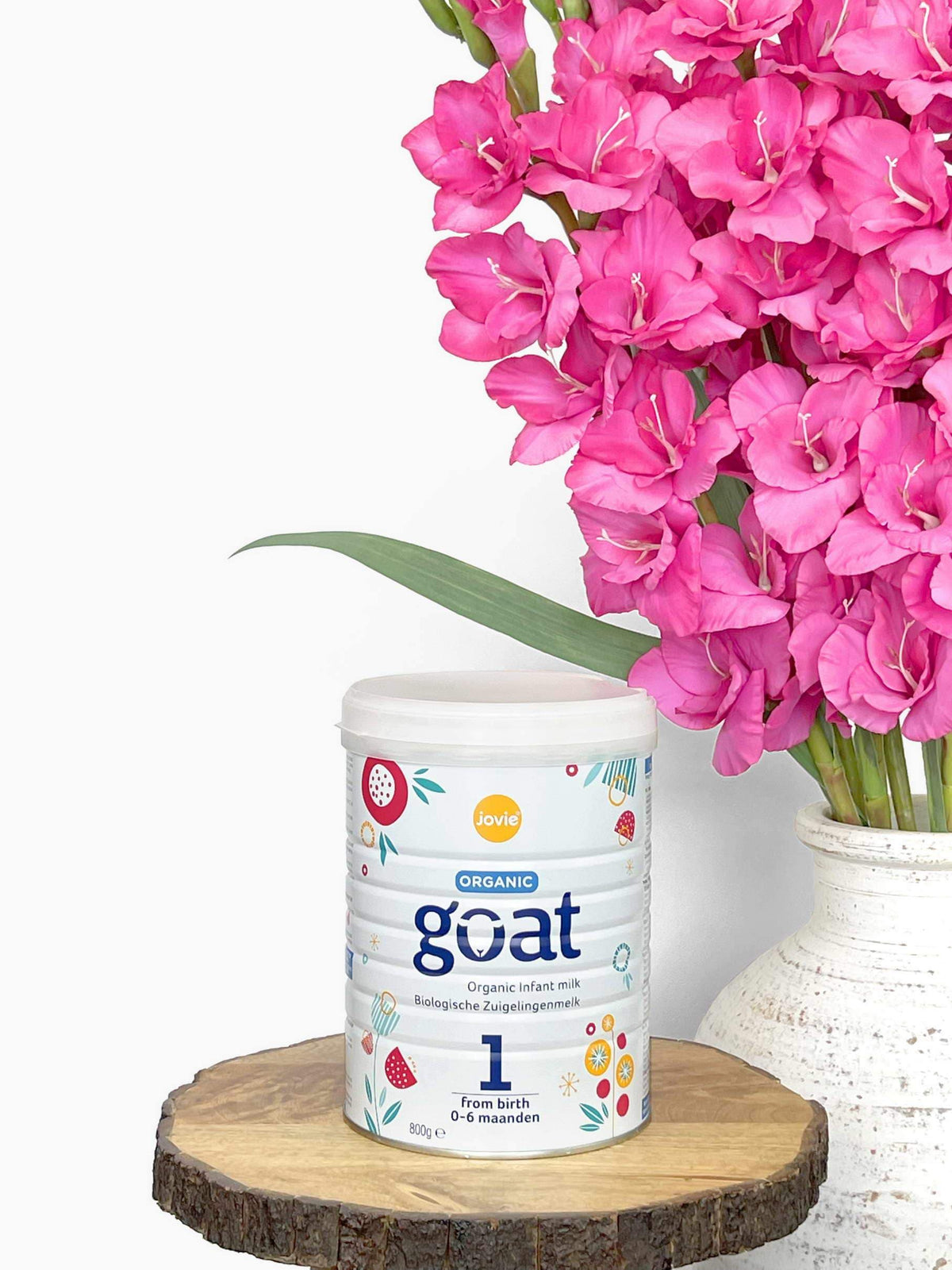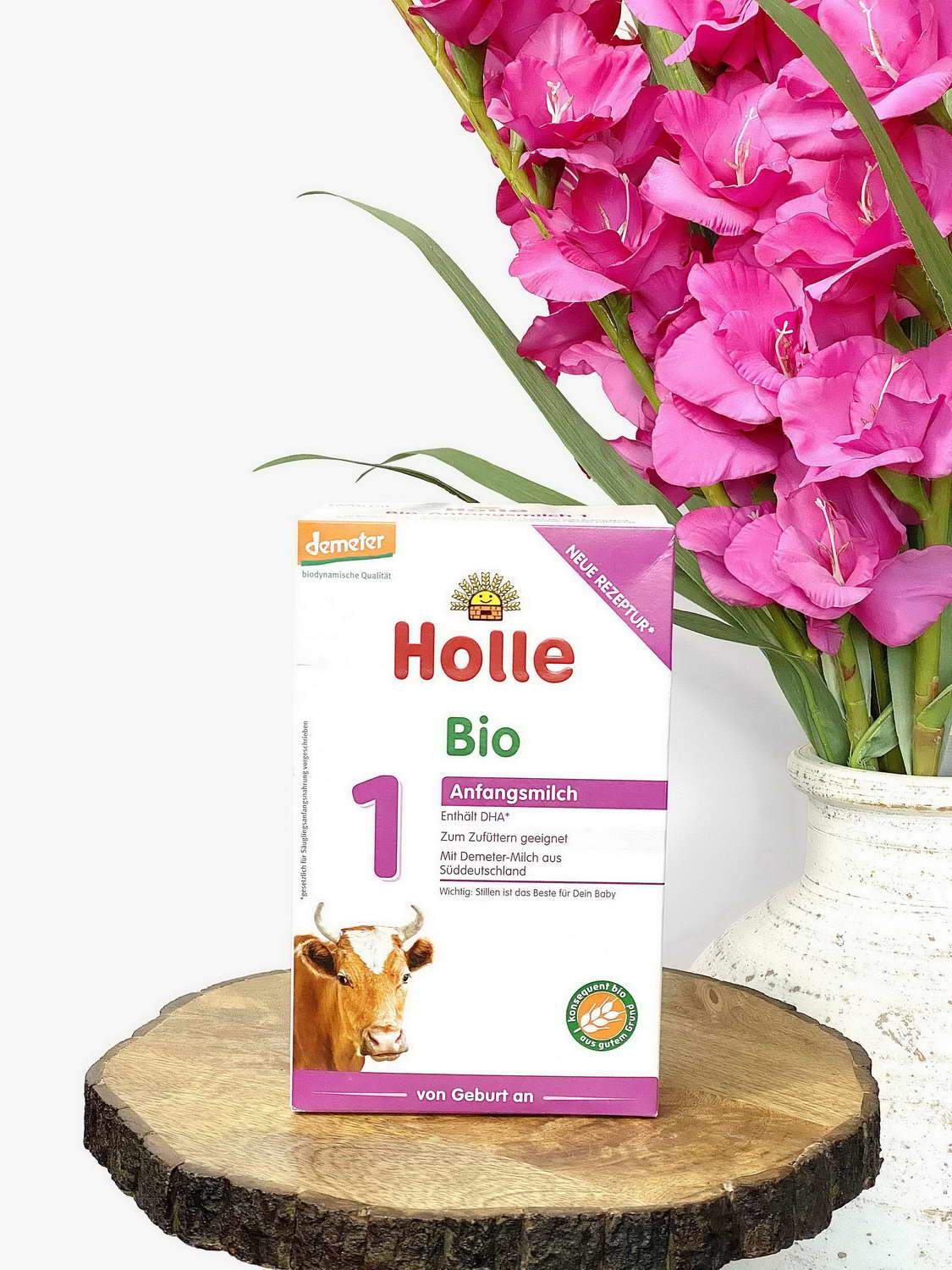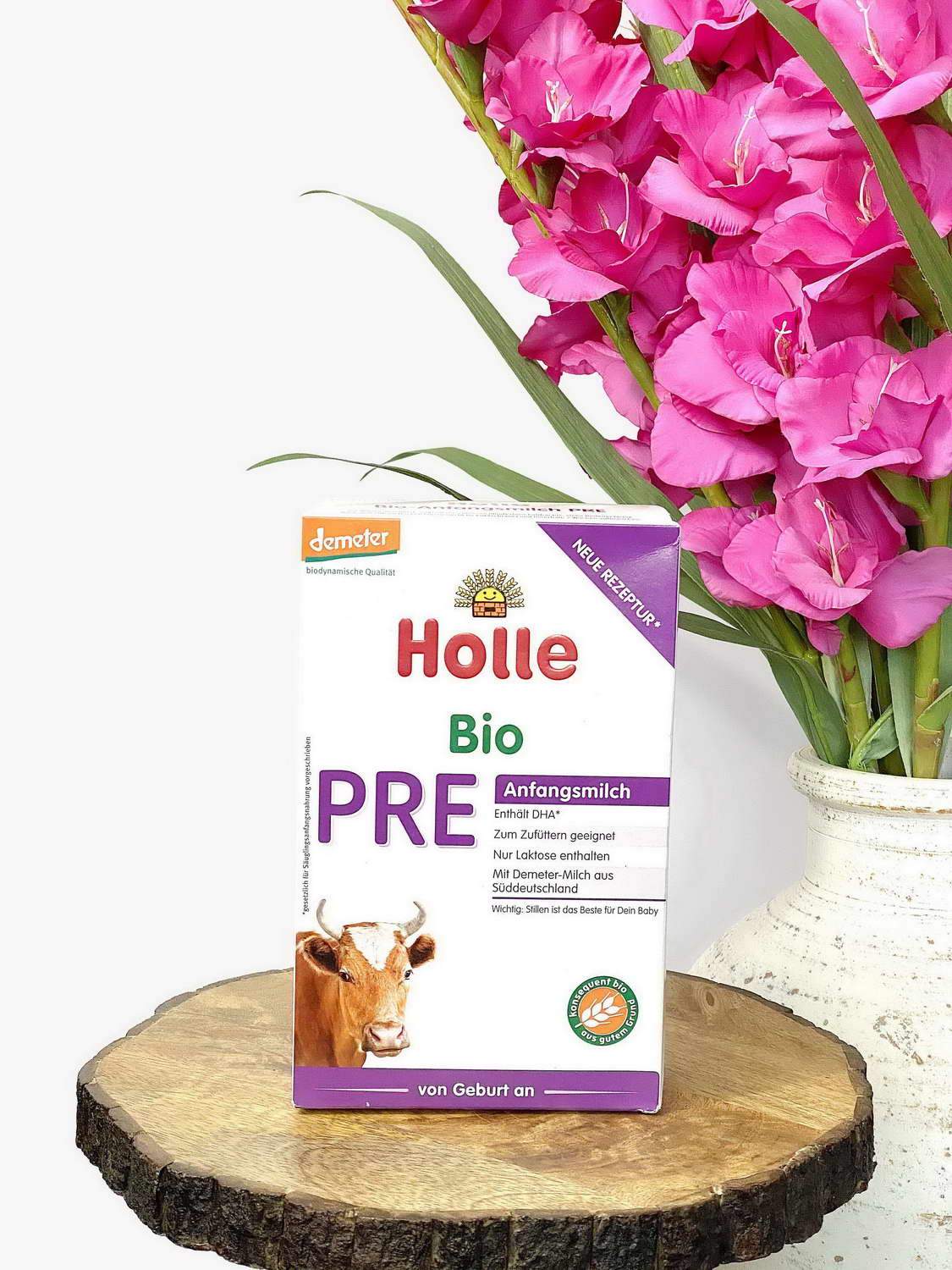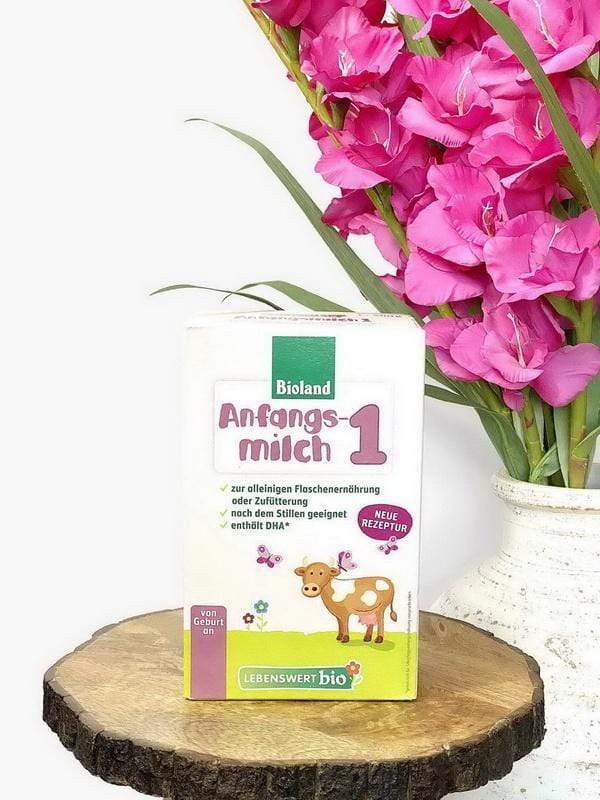Your cart is empty
Shop formulasYou have not added any favorites yet.
Shop formulasRecommended products
Best Formula for Colic
Written by Renee Published on 05/06/24 Read Time 5 min

Congratulations on becoming a new parent! If you have recently established a routine with your little one, it can be frustrating when suddenly, at around three weeks old, your baby starts fussing and crying every hour. You may worry that this could be a sign of colic.
Although colic is a common issue that affects as many as one in four babies, managing it can be challenging. But you are not alone in this.
In this article, we will share some ways to help your little one, including baby formulas that can reduce the symptoms experienced and may even help avoid colic altogether.

What is Colic?
The term 'colic' can be distressing since it is characterized by long periods of inconsolable crying with no apparent reason. Typically, colic episodes tend to be most severe when an infant is around six weeks old and decrease significantly by the time the baby is three to four months old.
We understand that these days can be physically and emotionally draining for the entire family. Let's explore ways to reduce or even relieve these symptoms altogether.
Colic Pain in Babies
Colic is a condition that causes babies to cry for extended periods, typically exceeding three hours per day, and occurring more than three times a week. The exact cause of colic is still unknown, but experts have confirmed that it is not caused by genetics or any events that occurred during pregnancy or childbirth.
It's important to remember that colic is a common condition and does not reflect your parenting skills. Don't be too hard on yourself.

How is Colic Diagnosed?
Various underlying health conditions can cause colic-like symptoms in babies, making diagnosis challenging. Doctors can conduct a complete examination to rule out other potential problems and identify the condition accurately.
Your doctor may diagnose colic by ruling out other problems like:
- An infection
- Acid reflux or stomach problems
- Sensitivity to formula or breast milk
- Pressure or inflammation in their brain and nervous system
- Eye trouble, like a scratch or increased pressure
- Uneven heartbeat
- Injury to bones, muscles, or fingers
How Long Does Colic Last in Babies
Since the exact cause of colic is not yet known, it can be more difficult for pediatricians and health professionals to diagnose the condition and impossible to narrow down how long the symptoms will last.
The good news is that colic is usually short lived, starting around 3 weeks of age (later in premature infants) and usually peaking when your little one is close to 6 weeks old. In most cases it is known to decline significantly after 3 to 4 months of age.
The colic may stop suddenly — or end gradually, with some good days and some bad days until most of them are good and it's clear the stage has passed.

Colic Calm: Managing Colic For Families
While the excessive crying and excessive symptoms will resolve with time, managing colic adds significant stress in the family emotionally and physically.
Listening to your newborn's screams day after day can be both heartbreaking and anxiety-provoking. Please take time to take care of yourself and other caregivers in your home.
Take Turns
When you start feeling tense, a fresh set of arms can help induce calm in a crying baby and the caregiver. If there are two parents at home during baby's witching hours, make sure colic duty is divided up equally between the two of you. It can help take an hour on, an hour off, a night on, a night off, or whatever works best. Sometimes just knowing you are soon to have a break will help!
Take a Break
It's important to respond to crying, which is an infant's only way to communicate. But when there is no backup it can be very important to every once in a while, take a 10- to 15- minute break during a particularly trying crying marathon. It will help both of you get through this particular challenging phase.
Turn Down the Noise
Earplugs, noise-canceling headphones, or listening to music can lessen the effect of your baby's wails. Don't tune out your baby so much that you can't hear him at all but just enough to take the edge off and help feel less tense.
Find an Ear or a Shoulder
Make sure you communicate your feelings. These days can be hard and having someone to talk to or cry with can help.
Get Help
Feeling overwhelmed or having trouble coping is not unusual at all when your baby is absolutely inconsolable. Don’t hesitate to talk to your doctor or a mental health professional. When you take the best care of yourself, you are able to take the best care of your little one.

How to Prevent Colic in Babies
Although colic causes remain widely unknown, it’s often linked to your baby’s still-developing tummy and digestive issues associated with certain components in breastmilk or formula.
Lactose sensitivity or an intolerance to cow's milk allergy are thought to be a leader among the colic causing troubles.
Colic Relief: Goat Milk Formula
To address a problem such as colic, families will be comforted to know that natural goat’s milk formula or organic goat’s milk formula, which are usually easier to digest for children, can help ease many of the symptoms your little one may have.
Goat Milk Baby Formula
Goat milk formula is a readily available alternative to cow’s milk formula. Families have found this is extremely helpful when faced with colicky struggles.
Goat Milk Formula vs Cow Milk Formula
Cow’s milk formulas are generally based on milk and usually will add whey to mimic breast milk. The whey is added to make the curds softer.
Goat milk naturally has a soft curd, and as the whole of the milk is used in the making of the formula, it often does not require the addition of whey.
Goat Milk Infant Formula
Whey is a protein that many infants with an immature digestive system may struggle with, resulting in a lactose intolerance or sensitivity.
The harder your little one's gut has to work the more this can manifest as bloating, stomach cramps, distress such as crying and irritability, and may occur a couple of hours after feeding.
Often the symptoms of colic are found because of this reaction.
Goat milk formula is naturally an A2 milk protein that makes digestion and absorption of nutrients easier.
The milk spends less time in the digestive track and colic signs are quickly improved and often relieved.

Colic Relief: Hydrolyzed Baby Formula
Extensively hydrolyzed protein formulas are regularly used to reduce colic in bottle-fed infants.
Without question, hydrolyzed protein significantly lowers gastro-intestinal symptoms and crying in little ones.
Hydrolyzed Formula
Hydrolyzed formula is a specialty, milk-based formula where the cow's milk proteins are broken down into smaller pieces.
This makes the formula easier to digest for little ones that have a milk allergy or colic symptoms due to digestive worries.
Hydrolyzed Formula List
When looking for the perfect hydrolyzed formula that will rid your infant of colic symptoms there are important factors to consider.
√ Reduced lactose content which relieves gas and wind and ensures up to 40% less crying
√ Special fat structure, closer to that of breast milk that reduces the formation of calcium soap and provides soft stool and easier absorption
√ A formula with Lactobacillus fermentum* and prebiotic dietary fibers (GOS) for ease of digestibility and balance of gut microbe

Anti-Colic Bottle
At almost any big brand store that carries infant needs, families can find speciality baby bottles that come with features specifically designed to help relieve gas and colic symptoms.
Just like finding the best formula to suit your little one's needs, it is important to have options because every baby is unique.
Here are some of the key features that bottle manufacturers use to try to eliminate the air that can intensify colic symptoms from entering your baby’s digestive system:
Baby Bottle Nipples
For gassy and colicky babies, slow flow is generally best. By reducing the risk of overfeeding with a fast flow, you are likely to alleviate gassy, colicky, and uncomfortable tummies.
Baby Bottle Nipple by Age
There are so many different shapes of baby bottle nipples; all have a slightly different shape, paying attention to your child’s latch to see which shape for your little one's mouth is important.
Depending on your baby’s preference, one may cause them to consume more air than another.
Angled Baby Bottle Nipples
When your baby sucks on a bottle, a vacuum is created and pressure builds and so does air. Many nipples have a built-in valve system that is designed to let air back out in a way that doesn’t create large bubbles in the baby formula that remain in the bottle.
Baby Bottle Air Vent
Bottles have built-in valves to keep the air from traveling through the milk and potentially cause even more bubbles to form. This is especially helpful for the colicky baby.
Bottle Babies
Choosing a baby bottle can be a bit more difficult. Bottles come in all different shapes and sizes.
For colic, the bottle we recommend is an angle to help guide the flow of gas bubbles through the formula and back to the end of the bottle.
This also allows your little one to be held in a more upright, seated position for feeding, which is the best way to give a bottle for colic and for growth and development.
Best Formula for Colic and Gas
Every baby is unique, and colic can have many different causes, often as individual as your infant. For babies who are struggling with colic, stomach distress and worries, these days are hard on the whole family.
My Organic Company can be an integral part of your support system during this difficult time; stocked full of European baby formulas that offer clear pure nutrition for all development stages, including colic.
Our team of experts can help you find the perfect formula for reducing problem symptoms with the very best in soothing ingredients.
Please be aware that this information is based on general trends in babies, and it is not medical advice. Your doctor should be your first source of information and advice when considering any changes to your child’s formula and when choosing your child’s formula. Always consult your pediatrician before making any decisions about your child’s diet or if you notice any changes in your child.
Breastfeeding is the best nutrition for your baby because breast milk provides your child with all the essential nutrients they need for growth and development. Please consult your pediatrician if your child requires supplemental feeding.
Author Bio:
Renee is an infant nutrition consultant and a full-time writer. Due to her experience in seeking better nutrition for her premature daughter, she advocates for European baby formula. Renee is fully committed to contributing value to this critical area of child development as a mother of a large family, foster parent, and adoption supporter.
Renee enjoys camping outdoors, swimming, and hiking with her family when she is not working.
















